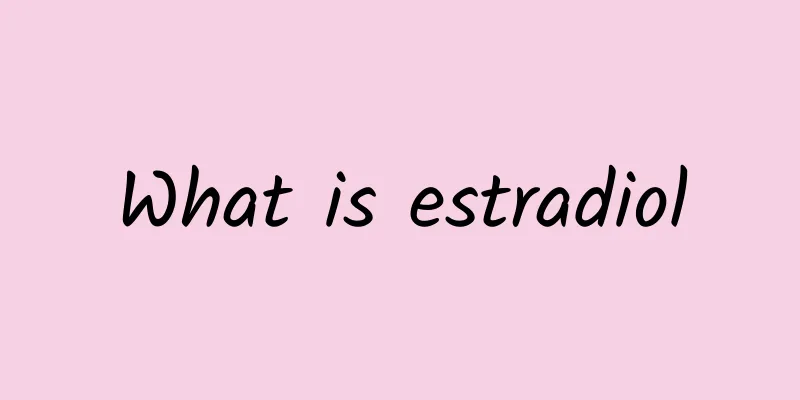One medicine can save your liver

|
Schisandra chinensis is a traditional Chinese medicine with five flavors. Because it has all five flavors, it is called Schisandra chinensis. Schisandra chinensis was first listed in Shennong's Herbal Classic as a top-grade Chinese medicine with extremely high medicinal value. In recent years, it has been regarded by most people as a good medicine for protecting the liver and treating liver disease. So, is Schisandra chinensis really effective in treating liver disease? Chinese Medicine | The Magical Schisandra 1. All five flavors are present, but sour is the most popular Schisandra chinensis, a traditional Chinese medicine with a history of thousands of years, has the magical feature of having all five flavors. It has all five flavors, which is very rare, so it is named Schisandra chinensis. "Compendium of Materia Medica" quoted Su Gong as saying: "Schisandra chinensis has five flavors: sweet, sour, bitter, and salty, but the sour taste is the most prominent. 2. Essential medicine for promoting the production of body fluids, wonderful astringent Schisandra chinensis is warm in nature and sour and sweet in flavor. It enters the lung, heart and kidney meridians. Sour can produce body fluids and can astringe things, so Schisandra chinensis has the effects of astringing the lungs and relieving coughs, nourishing the kidneys, producing body fluids and stopping sweating, calming the mind and tranquilizing the nerves, astringing semen and stopping diarrhea. It is also known as "the essential medicine for producing body fluids and the wonderful astringent." 3. Contains five flavors and nourishes the five internal organs The Yellow Emperor's Classic of Internal Medicine says: "Sour enters the liver, bitter enters the heart, sweet enters the spleen, pungent enters the lungs, and bitter enters the kidneys." Schisandra chinensis has all five flavors, so it can nourish the five internal organs and nourish their qi. Li Shizhen (Ming Dynasty) believed that: "The sour taste of Schisandra chinensis enters the liver and nourishes the kidney, the pungent and bitter taste enters the heart and nourishes the lung, and the sweet taste enters the middle palace and benefits the spleen and stomach." Therefore, it can play a balancing role on the five internal organs of the human body (heart, liver, spleen, lungs, and kidneys). Is Schisandra chinensis really effective in treating liver disease? Schisandra chinensis, a very common traditional Chinese medicine, is it really as valuable for the treatment of liver diseases as everyone expects? Let's take a look... 1. Protect the liver - liver protection effect Studies have shown that the ethanol extract of Schisandra chinensis, Schisandrin A, Schisandrin B, Schisandrin C, Schisandrin A, Schisandrin B, etc. have obvious protective effects on animal liver cell damage caused by poisons such as carbon tetrachloride. At the same time, Schisandra chinensis can improve the structure of liver cells, promote protein synthesis, and reduce the necrotic area. 2. Dealing with various types of hepatitis - enzyme-lowering effect Schisandra chinensis has the effect of lowering enzyme levels in all types of hepatitis, and its enzyme lowering effect is large in amplitude, high in efficiency and fast in speed. Schisandra chinensis can inhibit serum alanine aminotransferase in animals with liver damage caused by carbon tetrachloride. Moreover, it also helps the synthesis of liver cell proteins, restores or increases mitochondria, and improves the corresponding enzyme activity, so that liver cells can be restored and regenerated. 3. Promote bile secretion - anti-ulcer effect The liver is the place where bile is secreted. Schisandra chinensis can promote bile secretion and accelerate the excretion of toxic substances (such as alcohol) in the liver. In addition, it has an anti-ulcer effect because it promotes the secretion of bile. 4. Promote liver glycogen synthesis - immune bidirectional regulation Schisandra chinensis is rich in various active ingredients - lignans. It not only protects liver cell membranes and resists lipid peroxidation, but also promotes the production of liver glycogen and facilitates sugar metabolism. In addition, Schisandra chinensis can increase the synthesis of liver cell protein and has a bidirectional regulatory effect on the immune function (a certain Chinese medicine can transform the body from a hyperactive (or hypoactive) state to a normal state, so that the body reaches a balanced state, which is called bidirectional regulation). |
<<: This super disgusting thing actually brings new hope for curing tumors
>>: The king of medicine can nourish the spleen, heart, lungs and detoxify
Recommend
They have been enemies since the Ice Age, and now they still "love and hate each other"
Produced by: Science Popularization China Author:...
Is Purslane effective in treating skin allergies?
Nowadays, many people often encounter some skin d...
eMarketer: Travel companies increasingly focus on advertising on mobile and video channels
Tourism enterprises increased their advertising i...
China's "Big Goose", the world's first
Author: Wen Lele Geese may have been domesticated...
Why did trilobites become the "top stream" among ancient creatures?
If rocks are pages of history books recording the...
Identification method of Cistanche deserticola
There are many types of Cistanche deserticola. If...
Euclid: Peering into dark matter 10 billion light years away
At the Lagrange L2 point (hereinafter referred to...
No one knows more about corpses than I do! Not for the faint of heart!
Expert of this article: Zhang Yinming, PhD in For...
Why do airplane meals taste so bad? It may not be the food that’s to blame
When you are on an airplane, you may have had thi...
What are the medicinal properties of safflower?
It can be said that nature has brought us humans ...
The efficacy and function of Liangmianzhen
Many people are not familiar with Liangmianzhen, ...
In the world created by “screens”, the word “natural” is becoming less and less common?
Leviathan Press: The author of this article, Alan...
The efficacy and function of Fire Charcoal Mother
Friends who don’t know about Fire Charcoal Mother...
Side effects of using wormwood to treat fungus
Fungus is a relatively common virus. Many disease...
This article will introduce you to the "Jiuxiao Huanpei" zither collected by the National Museum
A brief study on the “Jiuxiao Huanpei” zither col...









